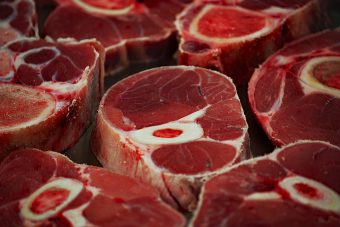
The European Parliament has voted to extend the agricultural goods covered by the bloc’s new law against imports linked to deforestation to include maize, poultry and pig meat in a move hailed by campaigners, but criticised by industry representatives.
The proposal, initially presented by the European Commission in November last year, aims to ensure that products and commodities imported into the EU are ‘deforestation-free’ – that is, that they do not contribute to deforestation anywhere along the value chain.
The Parliament plenary adopted a compromise text tabled by centre-right rapporteur Christophe Hansen on Tuesday (13 September), which set out that the agricultural commodities and inputs covered by the law should be extended beyond those included in the Commission’s original proposal.
The original proposal included six commodities: palm oil, cocoa, coffee, beef, soy, and timber.
Among other things, the lawmakers want maize and palm oil derivates added to the list – both products which were left out of the initial proposal, despite the fact that an impact assessment conducted by the Commission had concluded their inclusion would help fight deforestation.
According to the assessment, maize “has an impact, but it is less important than the other six commodities that they have proposed,” Hansen explained during a press conference after the plenary vote.
More:
However, their impact is still “non-negligible,” he added.
The inclusion of maize had been pushed for by the Green and Socialist party groups, but remained a contentious question due to the key importance of the product for the animal feed industry.
“If we want to tackle the EU’s deforestation footprint in a comprehensive way, these key deforestation drivers [maize and rubber] need to be included,” socialist MEP Delara Burkhardt told reporters ahead of the vote.
Warm words and warnings
The parliamentary vote was welcomed by many lawmakers as well as green campaigners.
“Today is a good day for the protection of international forests!” Green MEP Martin Häusling said in a statement, adding that, all in all, the parliament’s position turned out “very ambitious.”
Anke Schulmeister-Oldenhove, senior forest policy officer at WWF, said the Parliament voted “for a strong deforestation law” and called on the member states to follow suit.
However, industry representatives voiced concerns over the position.
In a joint statement, COCERAL, FEDIOL, and FEFAC, representing the EU grain and oilseed trade and animal feed industry, warned the parliament’s text “risks fuelling supply chain shortages and price inflation in the EU.”
The organisations called on the legislators to work with supply chain actors in order to better preempt practical problems that could arise during the implementation of the new legislation.
Source: EURACTIV.com


